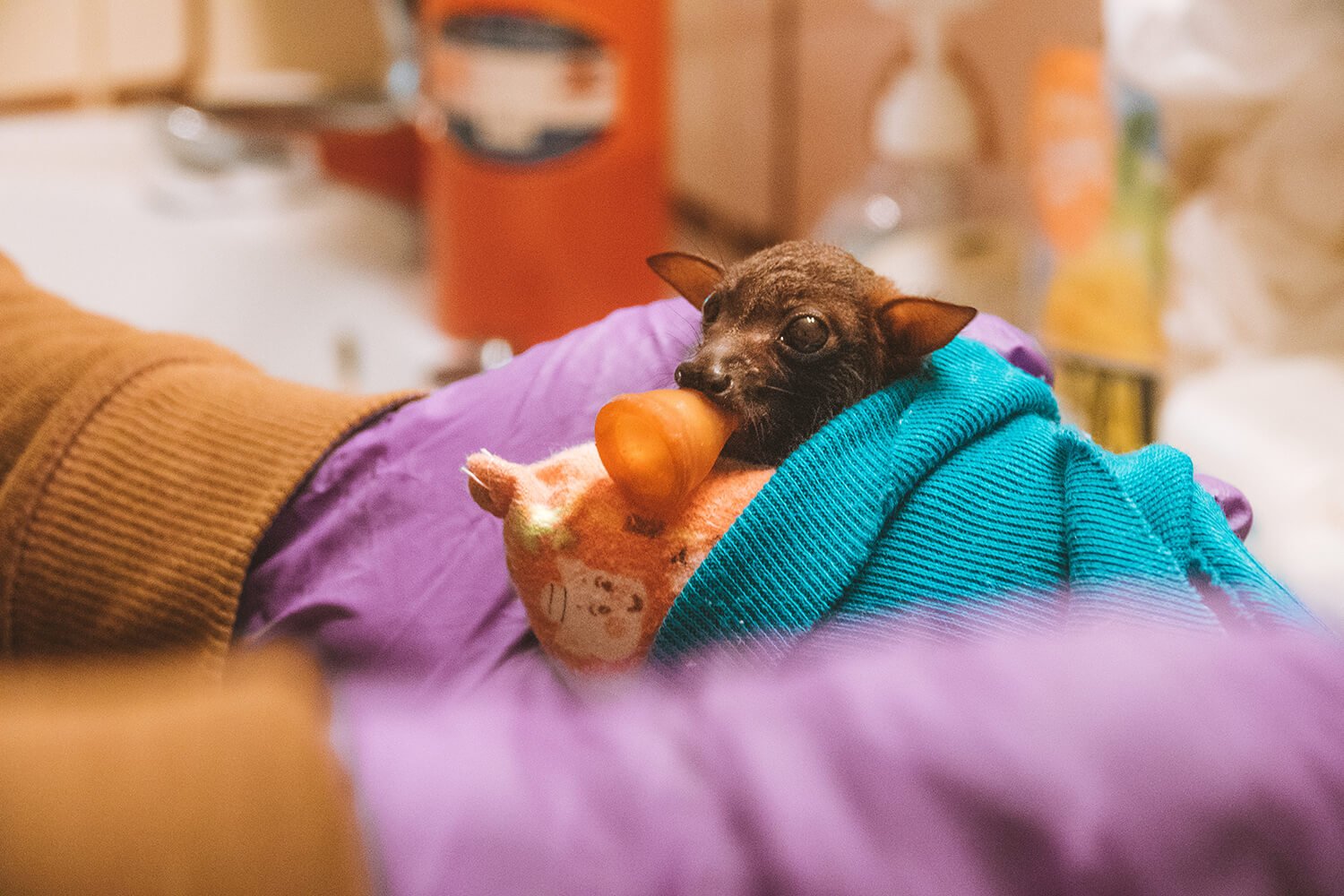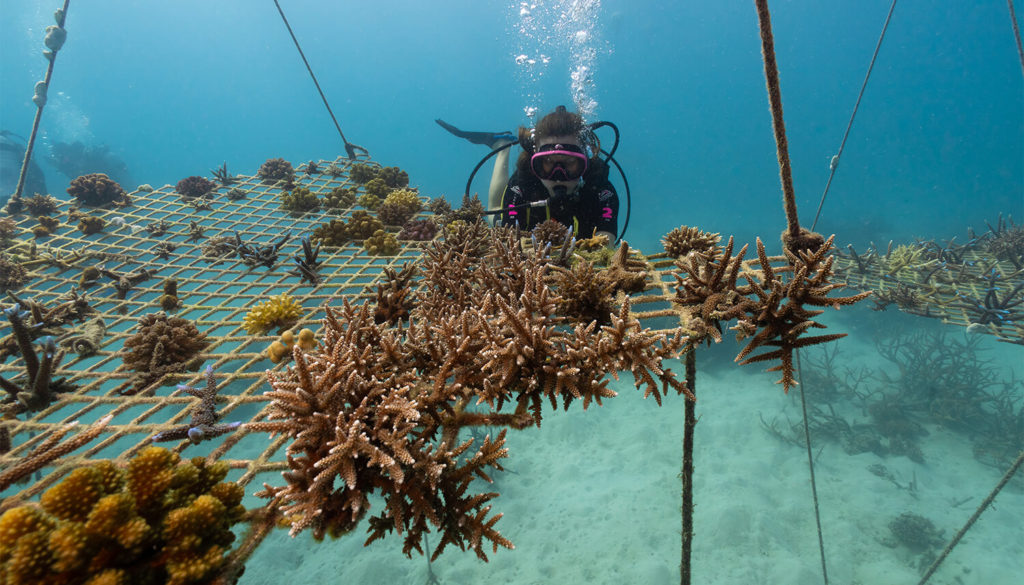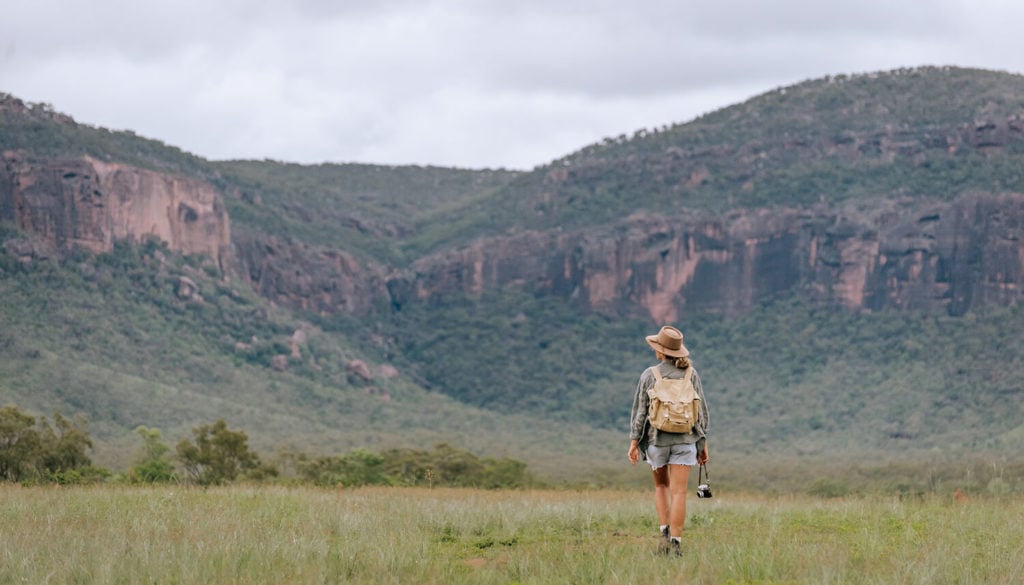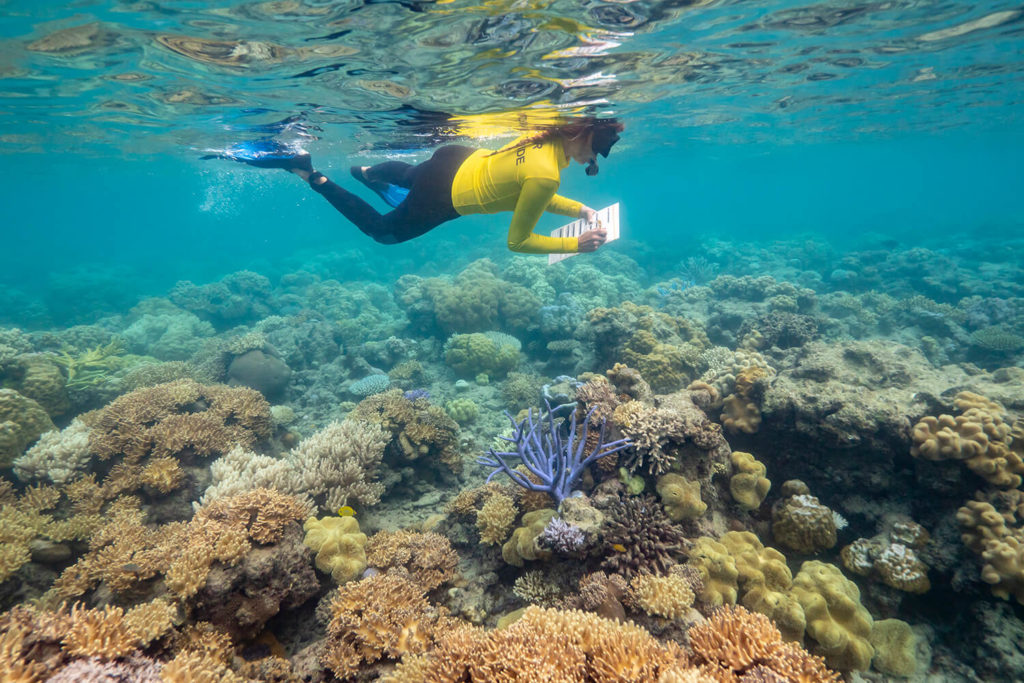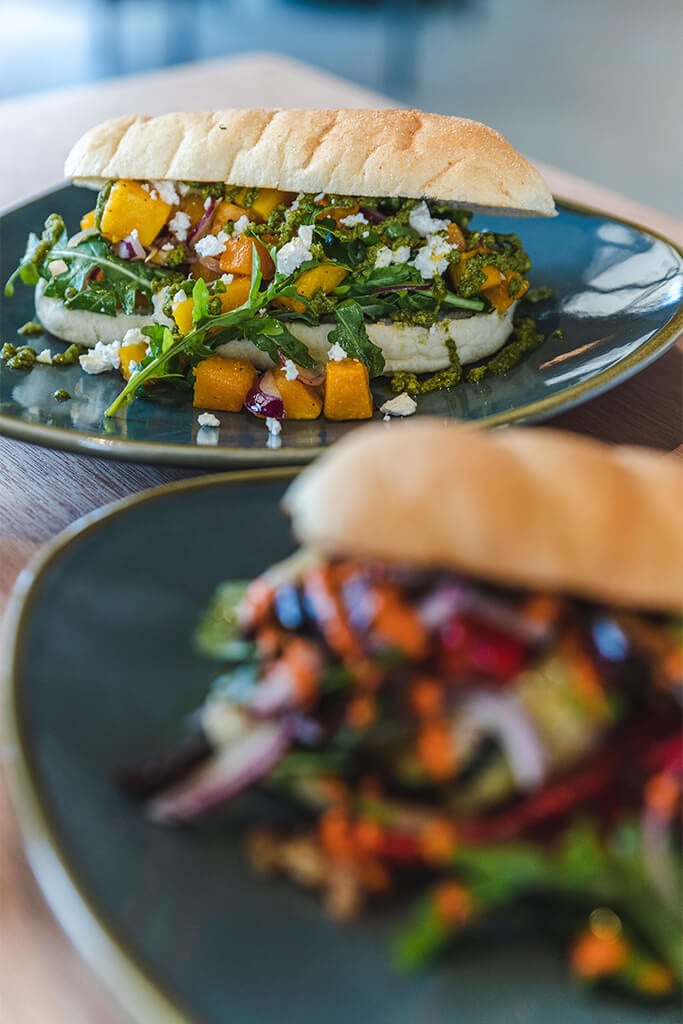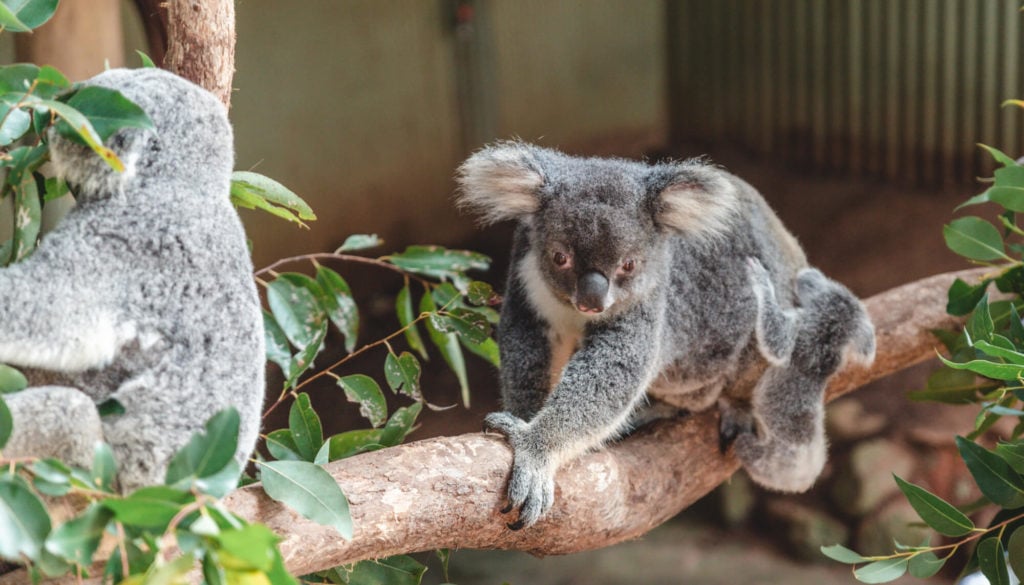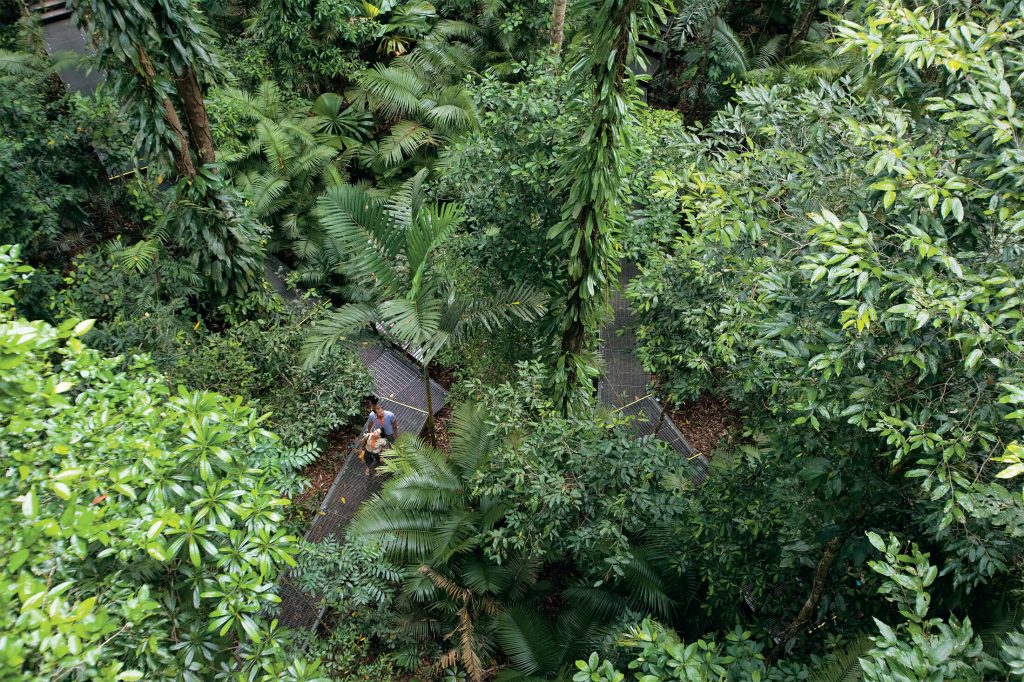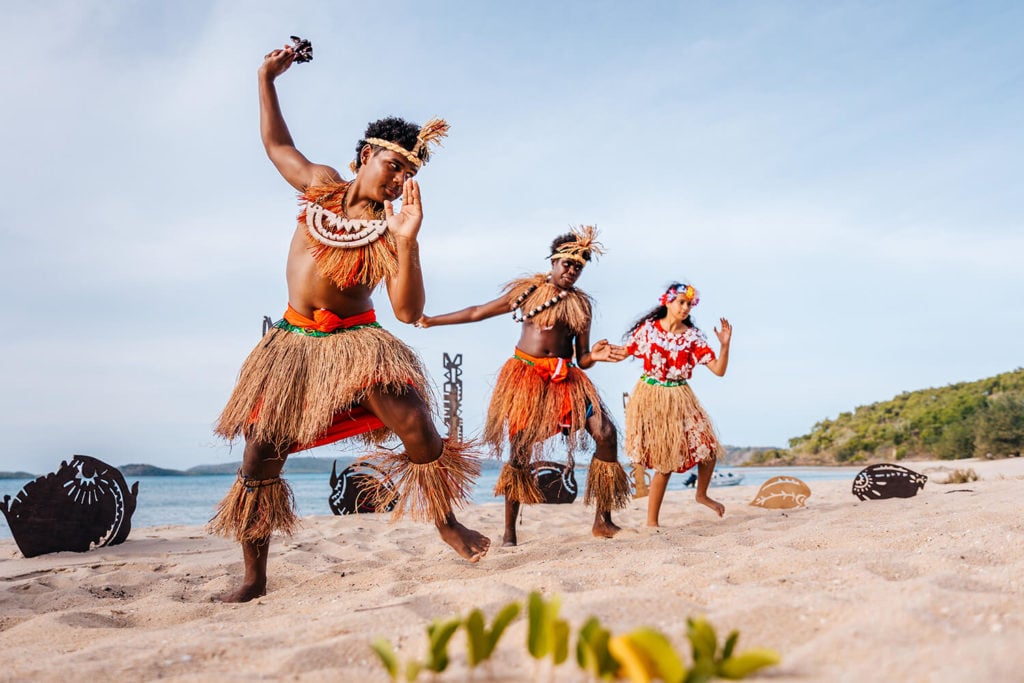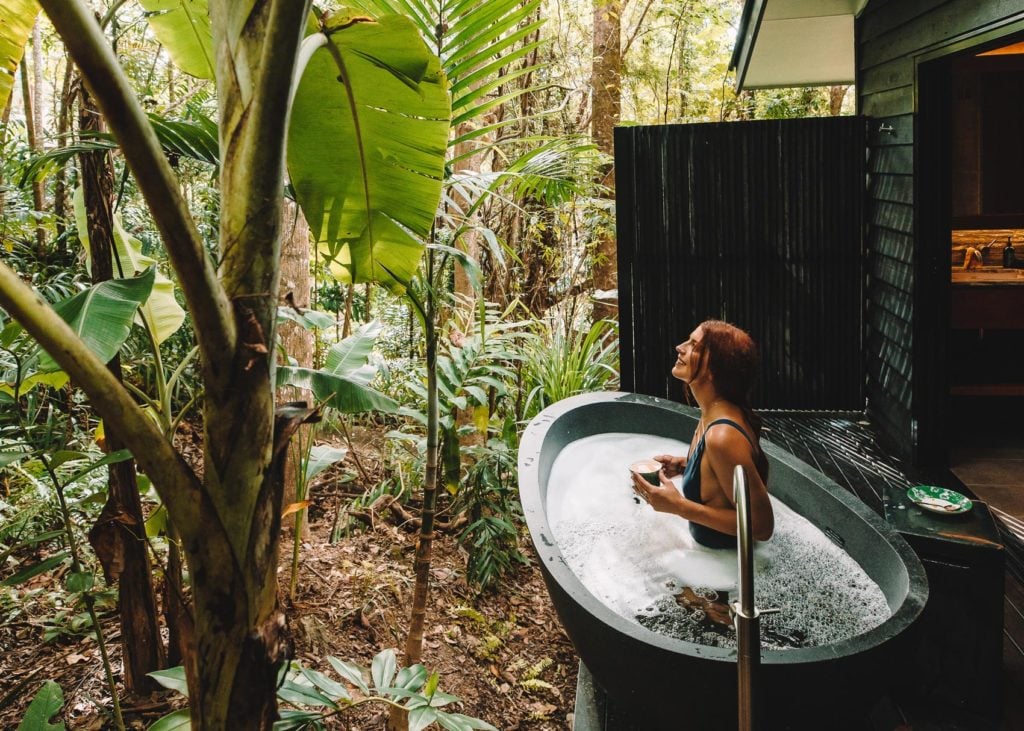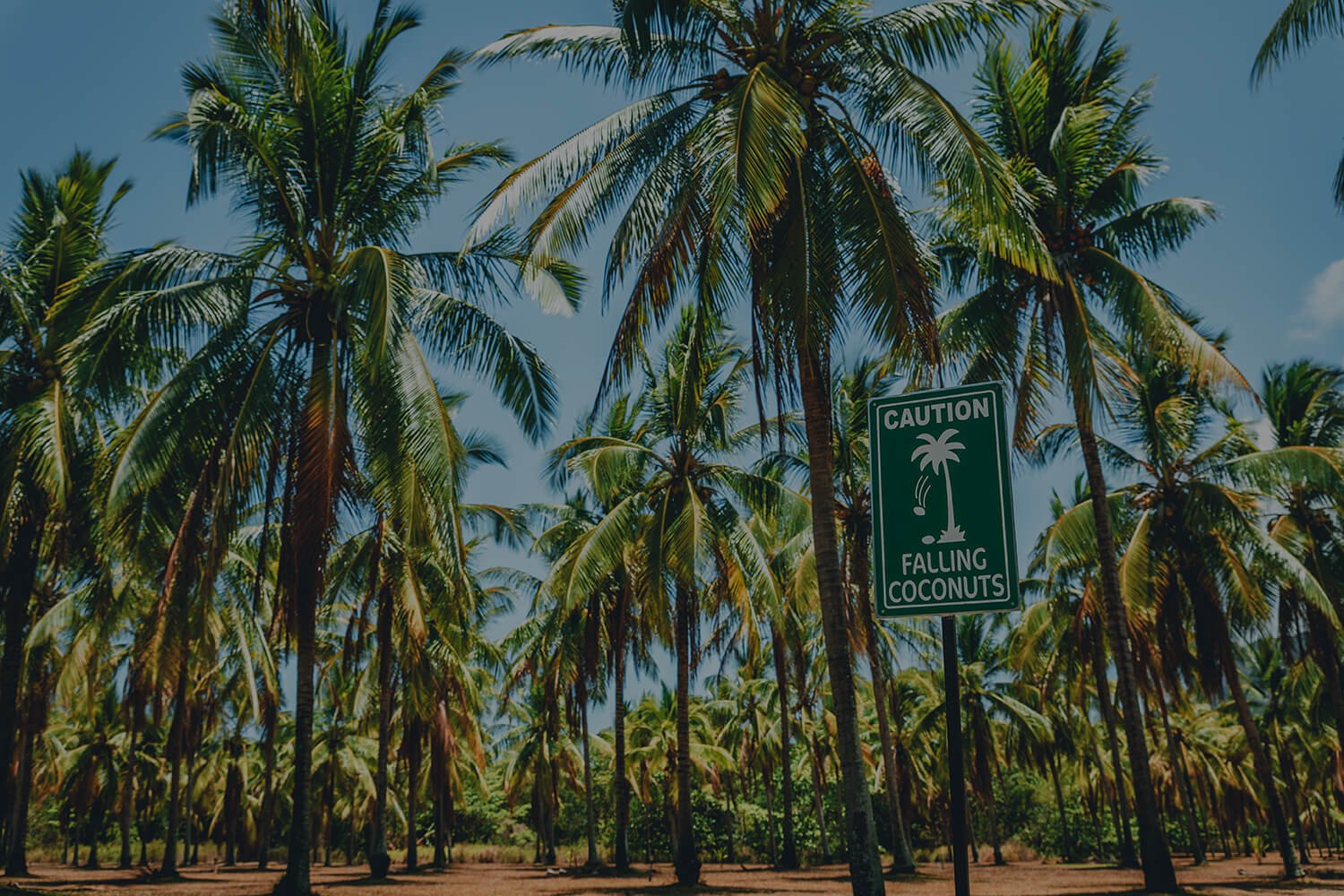TNQ Writer
Take nothing but photographs, leave only footprints and help give back to the unique environment of Tropical North Queensland with these experiences and causes.
Long gone are the days of collecting physical souvenirs with every trip you take. We’re in the age of conscious travel, where it’s not about what you take away from a holiday, but what you leave behind; an environment as pristine as you found it.
If the number of tourism businesses in Tropical North Queensland who generously give back to the environment is anything to go by, the conscious travel trend is already well established at this epicentre of two World Heritage-listed sites.
If you’re planning your Cairns itinerary and are conscious of your environmental footprint, bookmark this post and discover how you can tread lightly while you travel.
Support the Great Barrier Reef by visiting it
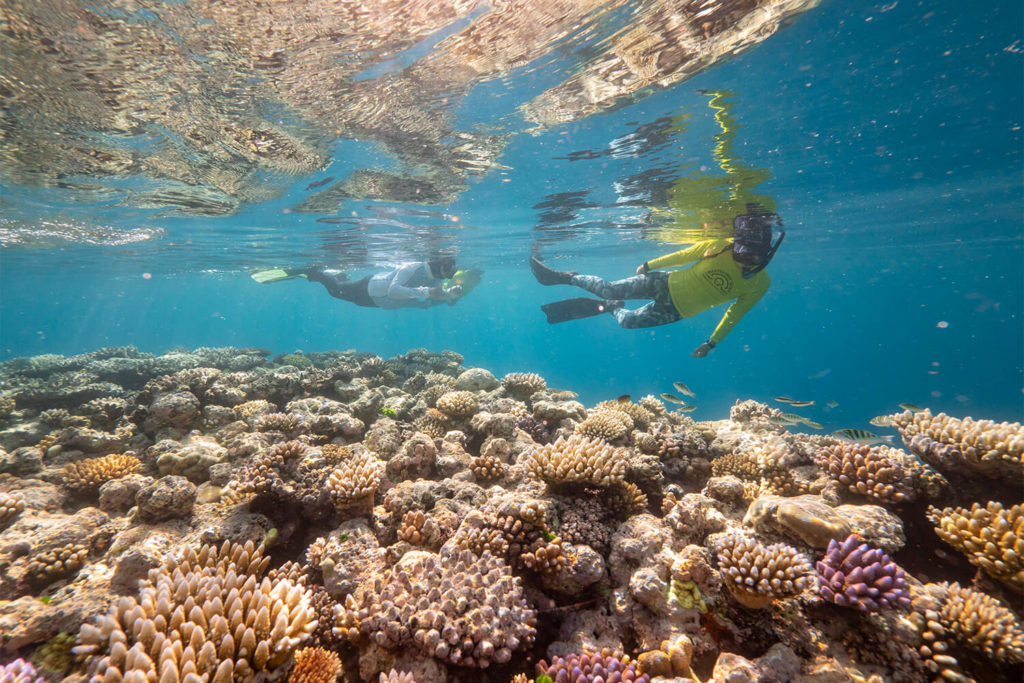
Master Reef Guides
It might seem incongruous at first read, but one of the best ways you can support the Great Barrier Reef is by visiting it.
When you experience the reef in all its technicolour glory, you’ll join the hundreds of thousands of others who see why this wonder of the world is worth saving.
Passions of Paradise’s Marine Biologist For a Day program allows you to contribute directly to reef conservation. Snorkellers can jump into the big blue with a conservationist to complete a Rapid Monitoring Survey, whilst certified scuba divers can observe coral planting in a nursery or directly on the reef.
Whether you dive in with a full-day tour of the outer reef with a Master Reef Guide, or prefer to learn about the reef with an educational session on dry land, or contribute to a world-first research effort like the Coral Nurture Program, education and experience are power when it comes to preserving the reef.
Donate to the North Queensland Wildlife Trust
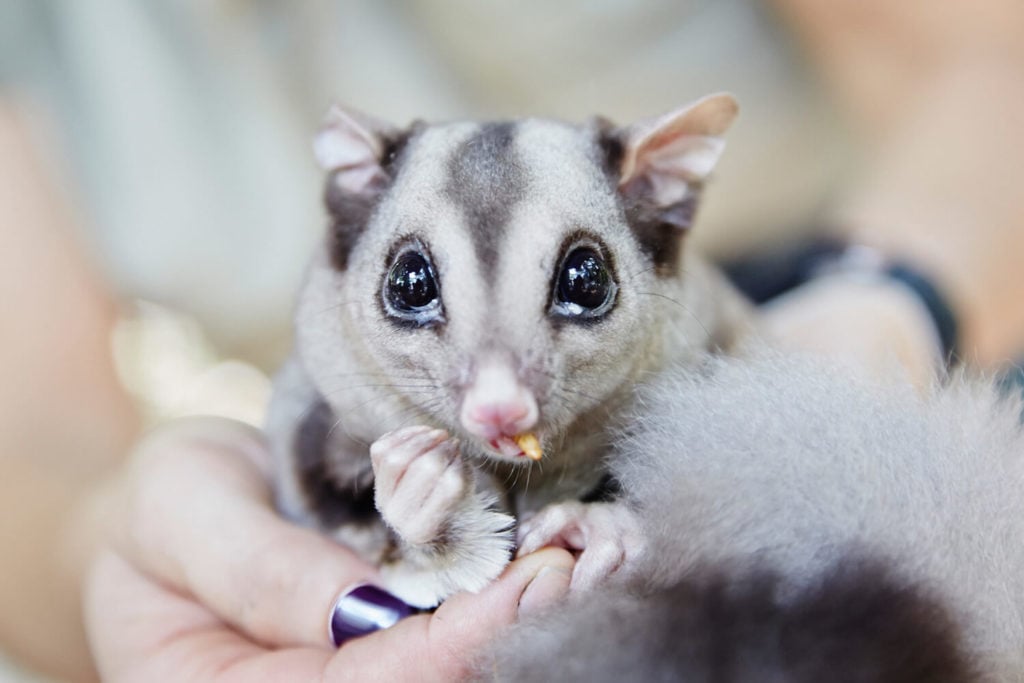
Sugar glider
If you choose your holiday destination based on the variety of animal encounters you’ll have along the way, chances are you’ve heard about Hartley’s Crocodile Adventures, Birdworld Kuranda and Kuranda Koala Gardens.
But what you might not know, is what goes on behind their scenes. Collectively owned by the Freeman Family, all three wildlife parks feed into the North Queensland Wildlife Trust, raising funds for wildlife conservation across the region.
When you make a donation, you can contribute to a range of projects benefacted by the North Queensland Wildlife Trust from restoring critical Cassowary habitat to monitoring the endangered Gouldian Finch.
And you can leave knowing the Freeman’s match every donation dollar-for-dollar.
Fly into the Tolga Bat Hospital
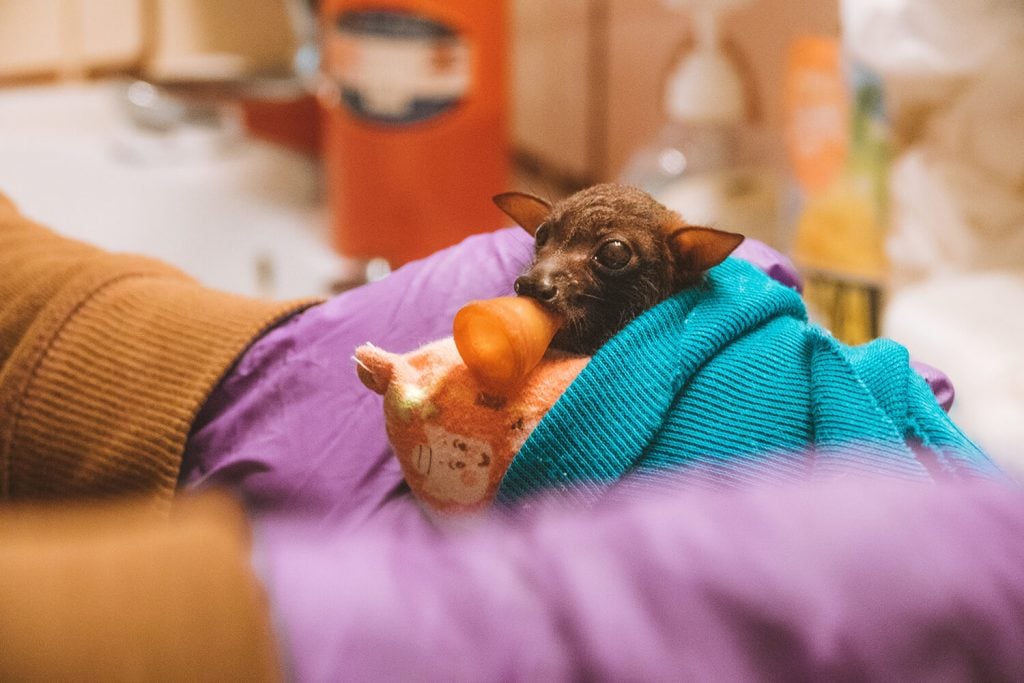
Pup feeding at Tolga Bat Hospital
If you thought a swaddled newborn baby was cute, wait until you see a young spectacled flying fox wrapped like a burrito in pastel fleece at the Tolga Bat Hospital.
What started as an adoption process of just two bats has turned into the Tolga Bat Hospital, with the team rescuing over 1000 orphaned and displaced bats each year.
You can pay a visit to this hospital to see their work and learn more about the impact of climate change on their patients through small group tours, operating daily. Across one hour, you’ll come face-to-face with their tiny patients and leave with a wing-full of knowledge about how to reduce your personal impact on the environment.
Whether you join a tour, offer a donation, pick up something from the gift store or become a member of the hospital, you’ll leave the Atherton Tablelands knowing you’ve contributed to the survival of the species.
Visit Tropical Animal Rehabilitation Centre (TARC)
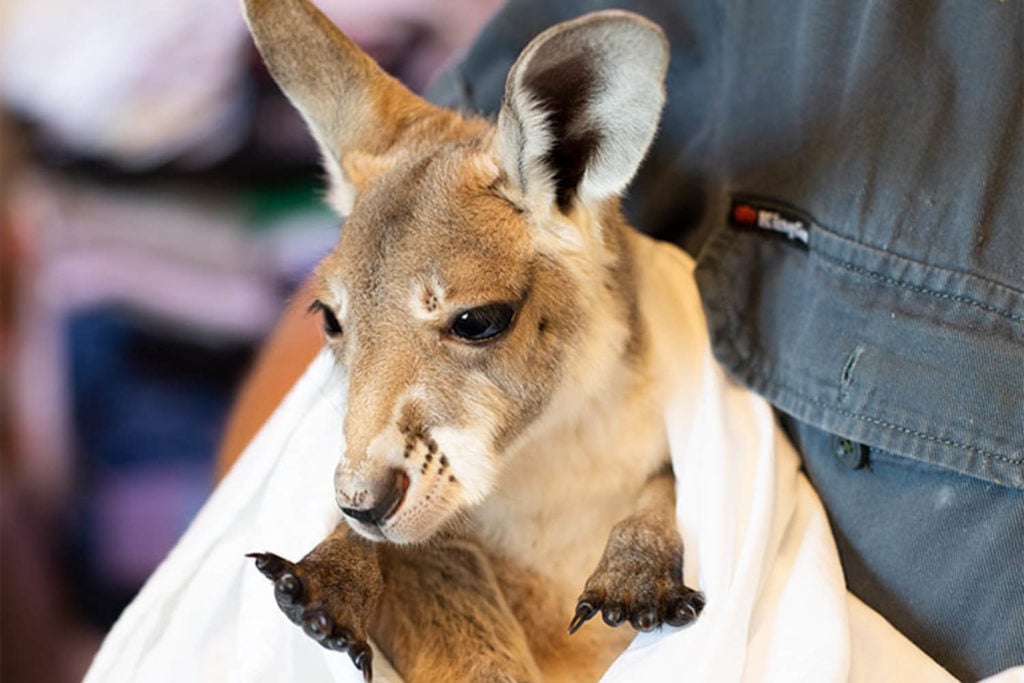
Rescue wallaby at TARC
Behind the scenes at Wildlife Habitat Port Douglas there’s a conservation-driven not-for-profit that requires as much attention as the animal encounters that sit front-of-house.
Tropical Animal Rehabilitation Centre (TARC) is where you’ll find injured wild animals getting the treatment and rehabilitation they require, before being released back into the area they were found.
Apart from the funding of benefactors, the facility relies on donations from visitors to Port Douglas Wildlife Habitat to fund the costs of treatment, food and the professional staff required to nurse the animals into good health.
To contribute, simply visit TARC at Wildlife Habitat Port Douglas on a Your Wildlife Habitat private tour.
Support the Tree Roo Rescue and Conservation Centre
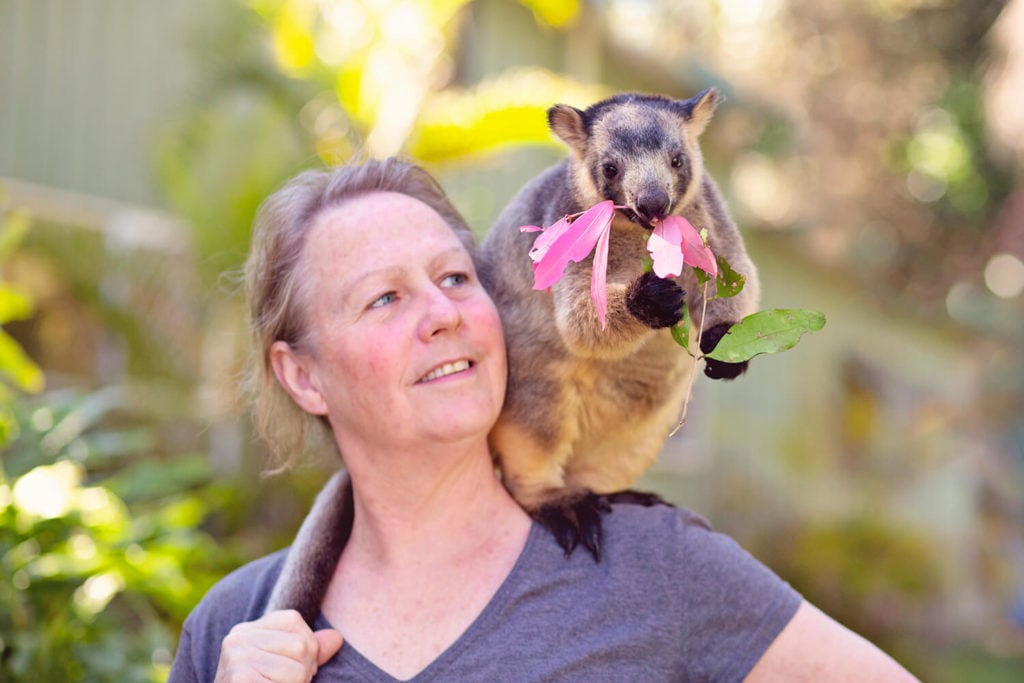
Tree Roo Rescue and Conservation Centre
The Wet Tropics rainforest might be home to 700 endemic species, one of the most famous is the Tree Kangaroo, of which Tropical North Queensland has Australia’s only two species – Lumholtz’s and Bennett’s.
While seeing them in the wild is about as rare as cassowary teeth, you can help them by donating to the Tree Roo Rescue and Conservation Centre on the Atherton Tablelands.
This not-for-profit organisation rescues and rehabilitates orphaned, injured or displaced tree kangaroos ready for release into the wild, or if they cannot be released, or as breeding animals in captivity.
While they’re not open to the public, you can assist their work by making donations, which help to fund the dietary needs of its patients along with vet bills and facility maintenance.
Restore the rainforest with a donation to Rainforest Rescue
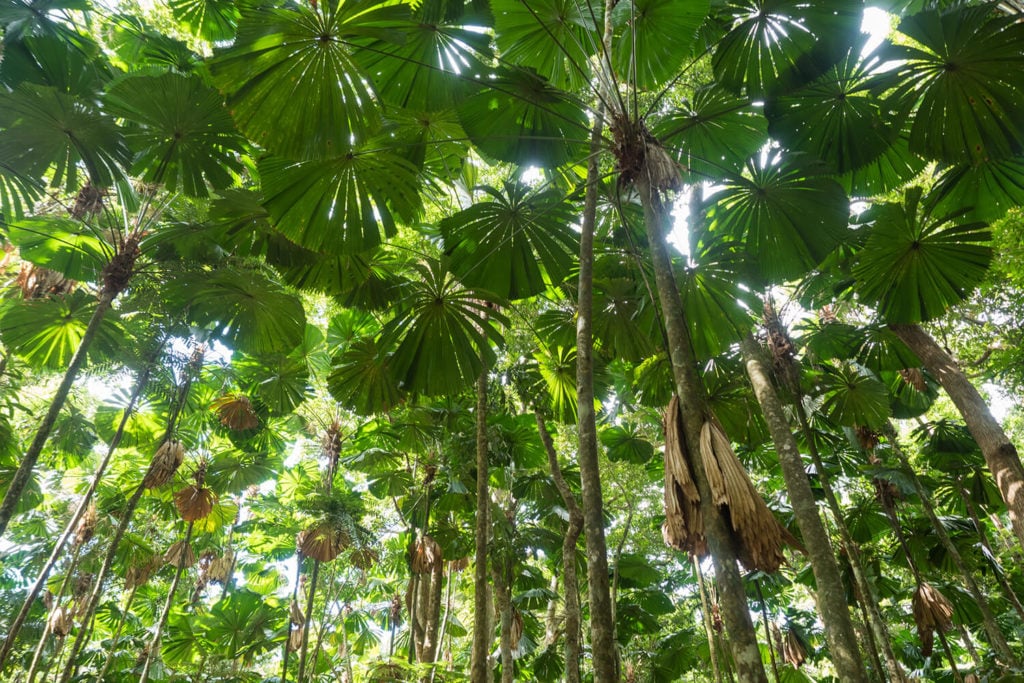
Licuala palm forest in the Daintree
The Wet Tropics is 180 million years old and has lived through its fair share of world-altering events, but it turns out this famous foliage needs help to face its biggest threats to date – man-made developments and climate change.
Enter Rainforest Rescue, which works to re-establish rainforests planting, maintenance and restoration programs, and eradicate weeds.
With a 2040 vision to buy back all the remaining threatened properties in the Daintree, Rainforest Rescue welcomes financial assistance towards its lofty goals.
Armed with a mantra that protecting rainforests is everyone’s business, you can donate money to save a rainforest or assist with animal protection, or donate your time to help plant a rainforest.
Protect the rainforest with Skyrail Rainforest Foundation
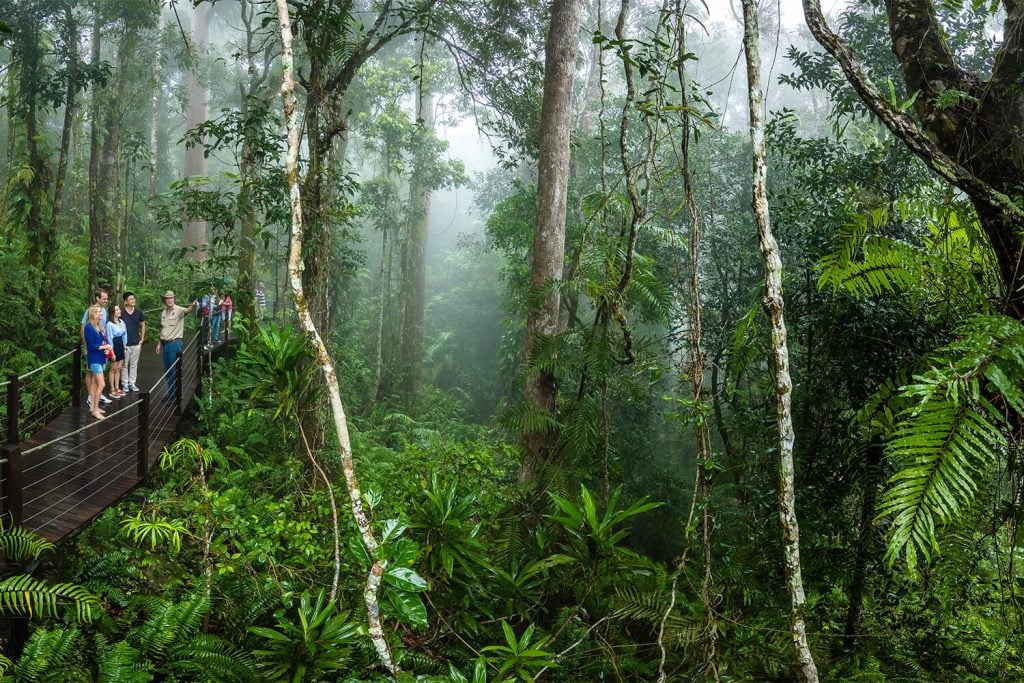
Guided tour at Red Peak Station on Skyrail Rainforest Cableway
Not only is Skyrail Rainforest Cableway one of the best ways to see the Wet Tropics Rainforest, as of 2005, supporting its foundation is one of the best ways to protect it too.
You can make a donation when you visit Skyrail, purchase something from the gift shop or join their membership program, which has the double benefit of providing you discounts to several other tourism attractions in the region. This all allows the foundation to create and run research programs and education projects to better understand the ecosystem.
It’s fitting for such a green, clean tourism product to have the backing of a foundation. If you missed this article, Skyrail Rainforest Cableway has earned its eco-stripes over years, recognised as an Advanced Ecotourism product, Climate Action Innovator and even been admitted into the Ecotourism Australia Hall of Fame to name just a few.
Discover the Daintree Discovery Centre
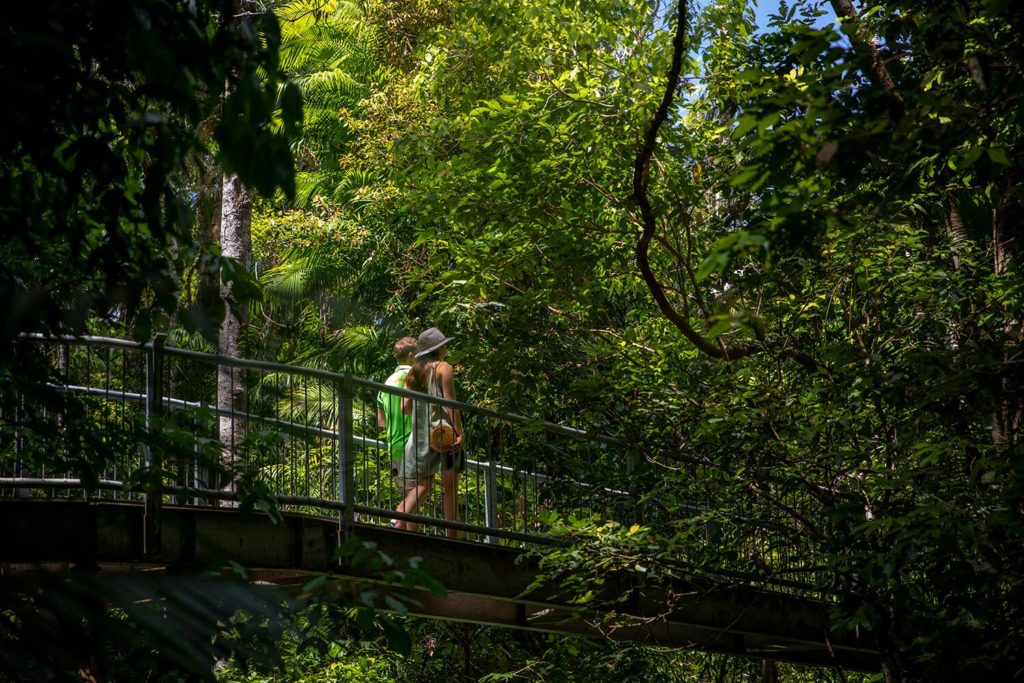
Daintree Discovery Centre
Getting to know a rainforest that spans 8940 square-kilometres and covers more ground than Samoa would require a serious time commitment, but good news for travellers, the Daintree Discovery Centre packages the best of the Wet Tropics into one neat, carbon-neutral visitor experience.
Everything about the Daintree Discovery Centre has been designed to preserve and protect the environment, including its elevated walkways, water conservation practices and waste management plan that leaves no impact on the environment it sits.
Not only does the experience immerse you in the forest, but your visit helps fund the important research work of the centre, which is done in conjunction with James Cook University.
Bird is the word at Community for Cassowaries
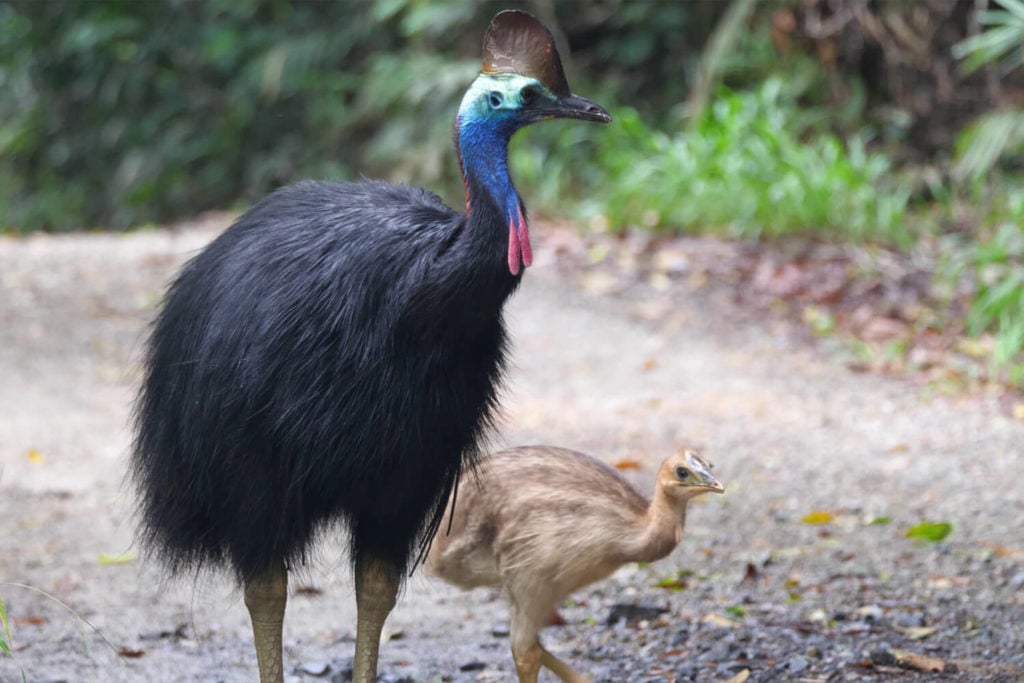
Cassowary and chick
The chance of a glance at the Wet Tropics’ most famous bird, the cassowary, might by the reason so many visitors travel to the Cassowary Coast, but without their protection there may no longer be a cassowary population to give the coastline its name.
Enter Community for Cassowaries aka C4, the voluntary organisation which protects and promotes the dinosaur bird, whose habitat is under threat due to clearing for agriculture and housing.
You can see their good work at the Mission Beach Visitor Centre, where volunteers offer heritage tours and undertake tree planting projects to help revegetate important cassowary country.
Looking for more?
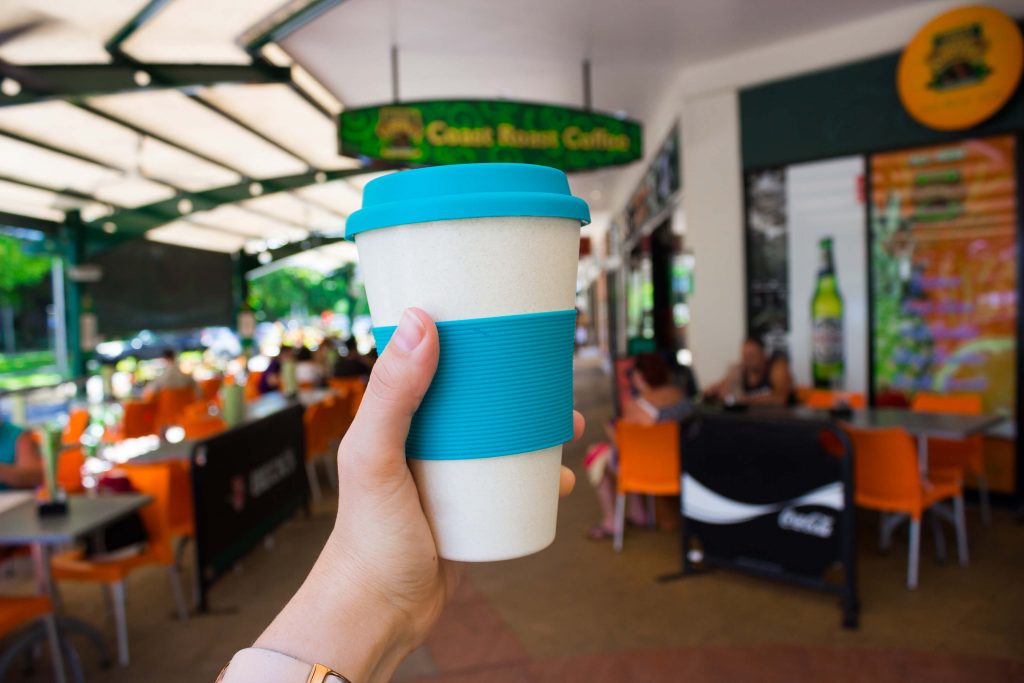
Organisations like Plastic Free Cairns help food retailers to switch from single-use plastics to better alternatives
Continue your conscious travel crusade with these organisations doing good work in Tropical North Queensland:

